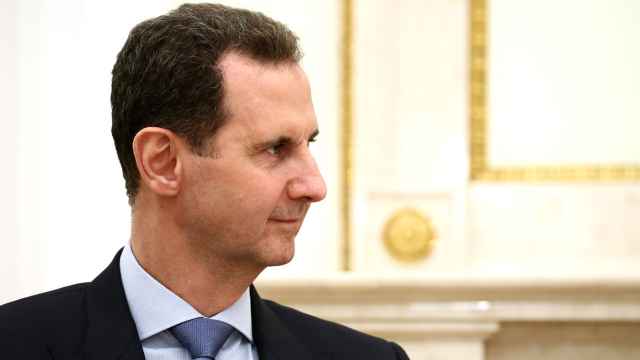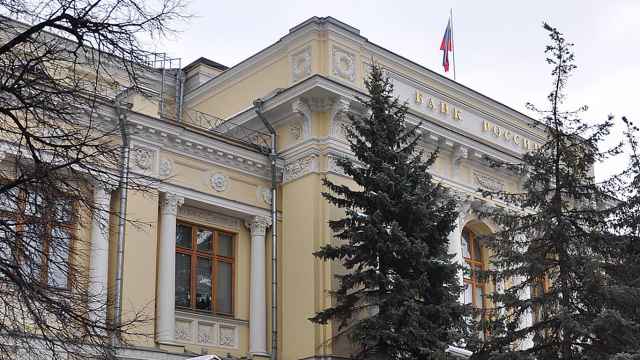CAIRO — As it dismantled its nuclear weapons program, Libya sparked a tense diplomatic standoff with the United States last year when it refused to hand over its last batch of highly enriched uranium to Russia to protest the slowness of improving ties with Washington, leaked U.S. diplomatic memos reveal.
The monthlong standoff, which has not previously been made public, was resolved only after a call from U.S. Secretary of State Hillary Clinton to Libya's foreign minister, apparently to underline Washington's commitment to warming relations. After the call, Libya allowed Russia to take away the uranium in December 2009.
But for that month, U.S. officials issued frantic warnings that the 5.2 kilograms of highly enriched uranium was vulnerable to start leaking or be stolen, since it was sitting at Libya's Tajoura nuclear facility with only a single armed guard.
The incident illustrates Libya's unpredictability as it shakes off its longtime pariah status and rebuilds ties with the United States and the world. The series of memos were released by the WikiLeaks web site to the Lebanese newspaper Al-Akhbar, which published them last week.
Libyan leader Moammar Gadhafi's 2003 decision to renounce terrorism and dismantle Libya's secret nuclear, chemical and biological weapons development program was a key step in opening the door to normalization with the West. Since that time, the United States, Russia and other countries have been transporting centrifuges, uranium and other nuclear equipment out of Libya. The United States and the UN nuclear watchdog, the International Atomic Energy Agency, have declared Libya's nuclear and chemical weapons programs fully dismantled.
The standoff was a last-minute surprise.
On Nov. 23, 2009, a Russian cargo plane landed at Tripoli, expecting to take the last of Libya's highly enriched uranium, contained in seven containers known as casks. Then the Libyans informed the Russians and Americans that the material would not be handed over _— and the plane left without the cargo, according to a Nov. 25 memo from the U.S. Embassy in Tripoli.
The embassy raised the alarm, warning that Tajoura was "lightly guarded" and that U.S. experts had seen "only one security guard with a gun" there. It said it asked the Libyans to beef up security and remove a loading crane at the site "to prevent an intruder from using it to remove the casks." It also warned that within three months, the casks would start to leak and release radioactive material.
Two days later, Gadhafi's son Seif al-Islam — seen as a the main reform proponent in Libya — told the ambassador that the shipment was halted because Libya was "fed up" with the slow pace of relations between Tripoli and Washington, another memo reported.
Specifically, he said Libya wanted deals to purchase military equipment and other "compensation" for its dismantled facilities.
More broadly, he said the U.S.-Libyan relationship was "not going well" and pointed to slights against his father during his visit to New York the previous September for the UN General Assembly — including protests in several suburbs against Gadhafi's attempts to pitch a ceremonial Bedouin-style tent to stay in, and the refusal to allow Gadhafi to visit Ground Zero.
In the memo, the embassy recommended that Clinton contact Libyan Foreign Minister Musa Kusa with a "general statement of commitment to work with the Libyans to move the relationship forward," coupled with a "strong" demand that the uranium be released and "not be held hostage."
On Dec. 3, Clinton called Kusa with "the statement of commitment," a later memo said, without specifying the content of the message. Soon after, the embassy reported that the Libyans promised the uranium would be released.
On Dec. 20, the Russian cargo plane returned, the uranium was loaded and taken to Russia the next day.
"Today's flight marked the successful completion of Libya's commitments to dismantle its nuclear weapons programs," the embassy reported.
A Message from The Moscow Times:
Dear readers,
We are facing unprecedented challenges. Russia's Prosecutor General's Office has designated The Moscow Times as an "undesirable" organization, criminalizing our work and putting our staff at risk of prosecution. This follows our earlier unjust labeling as a "foreign agent."
These actions are direct attempts to silence independent journalism in Russia. The authorities claim our work "discredits the decisions of the Russian leadership." We see things differently: we strive to provide accurate, unbiased reporting on Russia.
We, the journalists of The Moscow Times, refuse to be silenced. But to continue our work, we need your help.
Your support, no matter how small, makes a world of difference. If you can, please support us monthly starting from just $2. It's quick to set up, and every contribution makes a significant impact.
By supporting The Moscow Times, you're defending open, independent journalism in the face of repression. Thank you for standing with us.
Remind me later.





